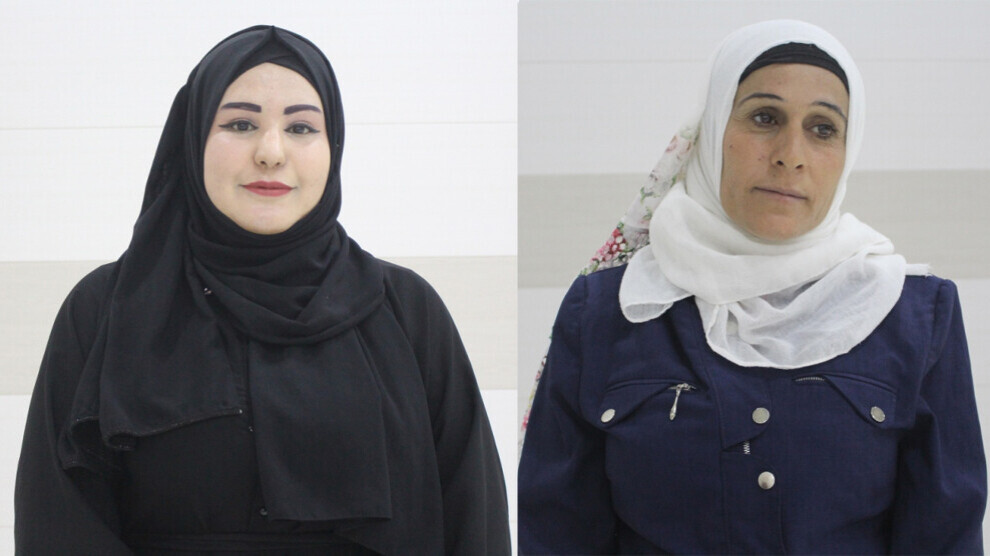Arab women: Jin, Jiyan, Azadî is a shield that illuminates our path
“The Jin, Jiyan, Azadî philosophy of Kurdish leader Abdullah Öcalan is a shield that illuminates our path,” Arab women say, defining the pre-revolutionary period as a period without identity for women.

RONÎDA HACÎ
Hasakah- The International Day for the Elimination of Violence against Women, annually observed on November 25, is an opportunity for women to strengthen their struggle and solidarity and raise awareness against gender-based violence.
Women welcoming November 25 amidst a spiral of war and violence, say women must fight against violence not only a day but 365 days.
Women who led the revolution in North and East Syria, where people from different nationalities and ethnic groups live together, keep playing a leading role in all spheres of life. They strive to overcome the patriarchal mindset by starting a revolution within the revolution through struggle and education. Before the revolution in Rojava, also known as women’s revolution, Kurdish women fought against the policies ignoring them and assimilation and the patriarchal mindset. However, Arab women had no organized struggle although there was an individual effort. They built their organized struggle after the revolution. Following the revolution in North and East Syria, they learned important days for women such as the International Women’s Day and the International Day for the Elimination of Violence against Women.
NuJINHA spoke to Arab women in Hasakah, a city in the Jazira Canton of North and East Syria, about gender-based violence and the International Day for the Elimination of Violence against Women.
‘Arab women had no identity’
“Women have no say in patriarchal societies,” Hîba Ehmed, an Arab woman living in the Erisha region of Hasakah, emphasized, adding: “Arab women face many challenges due to religious, traditional and tribal structures. Before the revolution, Arab women had no identity and rights due to religion, traditions and tribes. They had no role in tribes, facing many challenges such as child marriage and honor killing.”
‘Arab women see the women’s movement as a way to freedom’
The women’s movement and the Autonomous Administration of North and East Syria (AANES) provide a safe space for Arab women, Hîba Ehmed said. “Since the establishment of the Autonomous Administration, Arab women have taken important steps and they see the women’s movement as a way to freedom. As Arab women, we are deeply bound up with the women’s movement and the ideology of Kurdish leader Abdullah Öcalan because this movement sheds light on our life through the ‘jin jiyan azadi’ philosophy. Now, we struggle for our rights, identity and freedoms. As Arab women, we now see November 25 as a day of resistance.”
‘We are bound up with the ideology of Kurdish leader Abdullah Öcalan’
“The active participation of Arab women in education and academies to improve themselves is a revolution,” said Sacîda Muhammed, an Arab woman living in the al-Hol town of Hasakah.
“In Arab societies, women are forbidden from going out and taking part in society. This is a challenge that tries to keep women at home and enslave them. After the revolution in Rojava, many things have changed in North and East Syria, especially for Arab women. Now, Arab women improve themselves, receive education and contribute to society. Arab women play a role in the military by joining defense forces such as the Women's Defense Units (YPJ) to defend their people by fighting ISIS. Women are more conscious, educating themselves and their society. The Jin, Jiyan, Azadî philosophy of Kurdish leader Abdullah Öcalan is a shield that illuminates our path. We are bound up with the ideology of Kurdish leader Abdullah Öcalan because he showed us the path for freedom. Therefore, I call on all women to be in solidarity with each other and struggle to achieve the physical freedom of Öcalan.”
